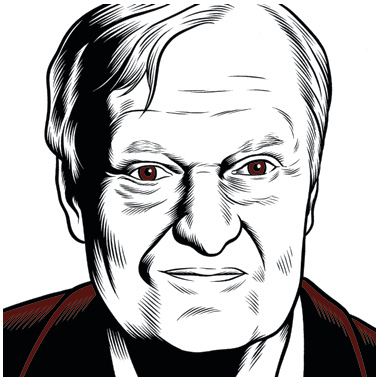For six months, I had tried to read all of Ashbery’s published work—from 1956’s Some Trees to 2007’s A Worldly Country, more than thirty poetry books in all, as well as some detours into the essays of Reported Sightings and Selected Prose. It’s an astonishing body of work: wide-ranging, funny, wise, and always with the indelible stamp of Ashbery’s singular mind. His poetry imposes a steep learning curve on its readers—not because it’s full of allusions or theoretical traps, but because the language remains free and unstable throughout. Just when you think you have a foothold, you find yourself in a cloud. And much to his own surprise, this aesthetic has earned him nearly every major award a poet can earn—the Pulitzer to the Griffin—while he has remained steadfastly an outside presence in the poetry community. He has many imitators but no equals.
I met Ashbery in his New York apartment on a rainy January afternoon. His longtime partner, David Kermani, ushered me into the living room and took my coat. In person, Ashbery is quite a physical presence—not imposing, exactly, but grand. An illness has left him with a limp, but he moves with grace and assurance. He has startling blue eyes, which he periodically opens wide. Around his apartment, paintings by Trevor Winkfield and Jane Freilicher adorn the walls, books sit stacked on the floor, and, in an alcove room, a postcard of Parmigianino’s Self Portrait in a Convex Mirror has been propped above Ashbery’s typewriter.
You have reached your article limit
Sign up for a digital subscription and continue reading all new issues, plus our entire archives, for just $1.50/month.
Already a subscriber? Sign in





